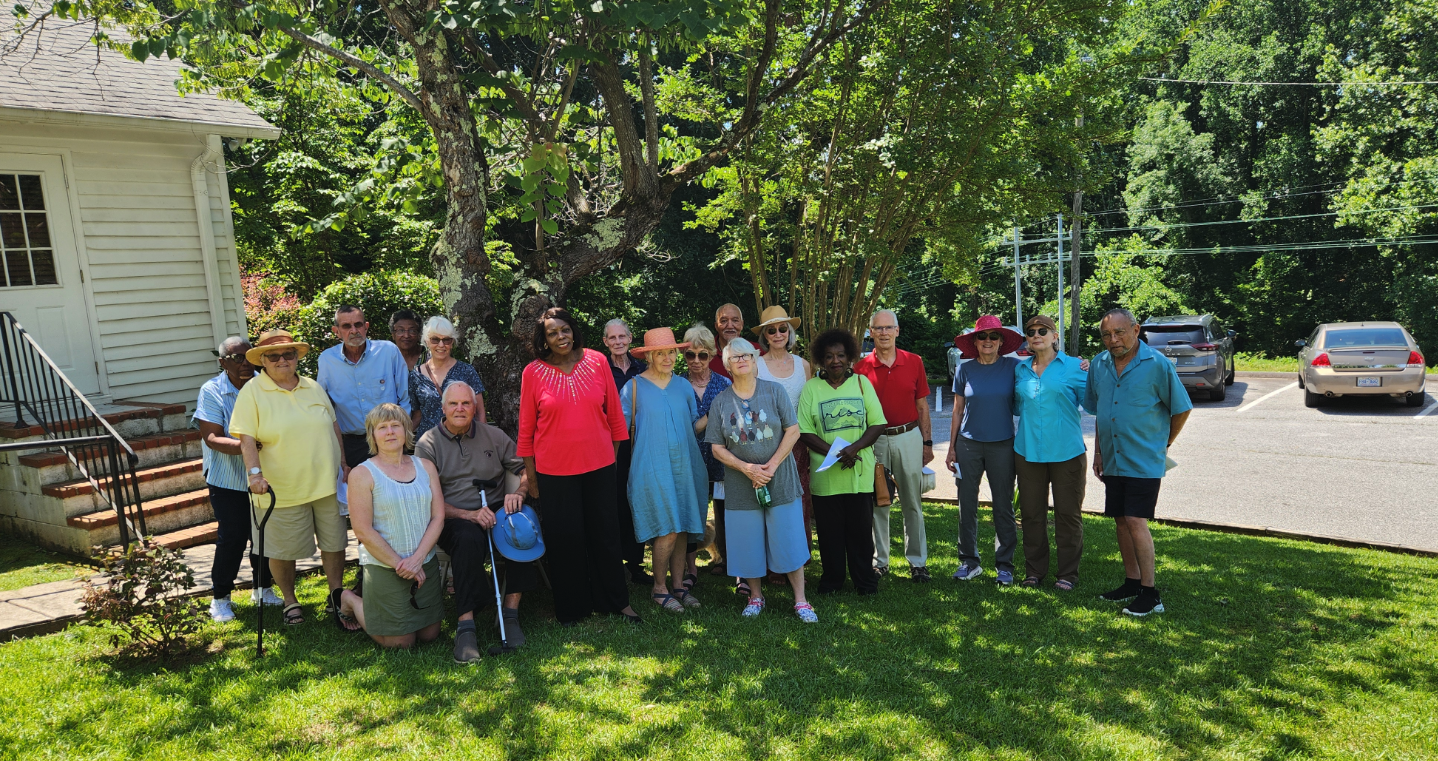N.C. gets top ranking for business climate
Published 12:49 pm Friday, November 5, 2010
North Carolina has the top business climate in the country for the ninth time in 10 years, according to Site Selection magazine. The publication evaluates states annually based on new and expanded facilities and a survey of corporate executives who help companies find new locations.
The top five states on the list are in the South, including South Carolina at No. 5.&bsp;&bsp; North Carolina earned 379 points this year in Site Selections scoring system, which ranks states based on the executive survey, the number of new and expanded facilities last year and so far this year, and the number of new facilities per million people. South Carolina received 343 points, following Tennessee, Texas and Virginia in the ranking.
All states face economic and budgetary challenges these days, but this ranking reminds us that there are significant success stories, too, says Site Selection Editor in Chief Mark Arend. North Carolinas first-place finish underscores its success across a wide spectrum of industries, from aerospace to life sciences to energy. We commend the governor and her economic development team for their focus on making and keeping their state business-friendly.
The magazine cites numerous investment projects in North Carolina this year, including an expansion by Siemens in Charlotte that will create 820 jobs and a collaborative effort by Novo Nordisk and Nypro that will create 241 jobs in Johnston and Buncombe counties. Last year, IEM announced the relocation of its headquarters from Louisiana to the Research Triangle Park, bringing 430 jobs to the area. Caterpillar announced two projects in the state that will create 392 jobs.
People across the state and many businesses around the country know that Ill take any call and go anywhere to bring a business to our state or expand a business or create a small business in North Carolina, says N.C. Governor Bev Perdue. We have been very aggressive, and that has paid off.
Perdue says executives who chose North Carolina over the past year cited the states skilled labor pool, custom worker training programs, solid transportation infrastructure, low costs for doing business and high quality of life.
South Carolina scored high for not only attracting Boeing to North Charleston, but gaining other investments in the automotive and aerospace industries. Site Selection says the state also has passed legislation making it easier to attract jobs and investment.
***
Clemson University held a groundbreaking for a wind turbine test facility in North Charleston, S.C. that university and state officials hope will create a new hub for the clean energy industry. The Clemson Restoration Institute received a $45 million grant from the U.S. Department of Energy and $53 million in matching public and private funds for the project.&bsp; The grant was the largest in the history of Clemson University.
Today, we are not just breaking ground on a new Clemson University research facility, said Clemson President James Barker at the groundbreaking. We are breaking ground on a new economic era for our state.
The facility, located on the former Navy base along the Cooper River, will test turbine drivetrains that can be up to 66 feet long and 400 tons. The facility will be the only one in the country with the capability of testing such large drivetrains. Clemson competed with universities across the country for the grant funding. Both General Electric and Siemens have committed to using the Clemson facility, which officials say could lead to the creation of 10,000 to 20,000 jobs for the regions clean energy industry over the next 20 years.
U.S. Senator Lindsey Graham said the project will help the country move toward energy independence. I want an energy policy that breaks our dependence on foreign oil, said Graham. Im tired of talking about it.
***
A wind farm off the South Carolina coast could meet much of the states energy needs, according to a consortium of academic researchers, energy industry leaders and government officials.&bsp; Santee Cooper renewable energy director Elizabeth Kress says a recent yearlong study found that a wind turbine farm could generate up to 5 gigawatts of electricity, enough to power 1.75 million homes. Santee Cooper has announced plans to produce in the next 10 years 40 percent of its power from non-carbon fuel sources.
The consortium plans to work on building a demonstration wind turbine as the next step toward creating the wind farm.
***
A high-speed rail project to connect Georgia and North Carolina with a line through Upstate South Carolina received a boost with a $4.1 million grant from the U.S. Department of Transportation. The funds will be used for the first of two environmental studies that must be completed before the states can begin acquiring rights-of-way.&bsp; The grant was awarded to Georgia, which applied for the funds and is working with South Carolina and North Carolina on the project.
Plans for the rail corridor moved forward after a favorable feasibility study in 2008. North Carolina is also moving forward with Virginia on a project to create high-speed rail between Charlotte and Washington, D.C. North Carolina received $545 million last fall to move forward with that project.
Last week the federal government announced under its High-Speed Intercity Passenger Rail initiative a new round of grants, including the $4.1 million for the Upstate project. The federal government received 132 applications totaling $8.8 billion and awarded $2.4 billion in grants.
States understand that high-speed rail represents a unique opportunity to create jobs, revitalize our manufacturing base, spur economic development and provide people with an environmentally friendly transportation option, says U.S. Transportation Secretary Ray LaHood.
***
The University of South Carolina received a $3.6 million grant for research on developing lighter fuel cells for portable uses. The grant, awarded by the U.S. Defense Department, will by used by three USC endowed chairs, who will conduct the research at new labs at the Innovista research campus.
***
Voters in Greer, S.C. approved Tuesday a referendum to allow sales of beer and wine by bars and restaurants on Sunday.
Downtown business owners said they hope the sales will boost their business.&bsp; Local religious leaders decried the resolution, which passed with about 58 percent of the vote.
Businesses will have to apply for a permit to sell alcohol on Sundays. Grocery and convenience stores are not eligible to participate.
***
Voters in Charlotte approved Tuesday three bonds that will provide $204 million for transportation, neighborhood improvements and affordable housing. The largest bond, which passed with 70 percent of the vote, is $157 million for projects across the city to build sidewalks, connect streets, improve traffic signals and pedestrian crossings and create bike lanes.
***
South Carolina has approved new permit rules that will allow shipping containers hauled by truck to weigh up to 100,000 pounds, a limit more in line with neighboring states.
The previous limit in the state was 90,000 pounds, while North Carolina allows 94,500 pounds and Georgia permits up to 100,000 pounds. South Carolina state officials say the higher limit could increase export business from Charleston by 30 to 40 percent. Specifically, they say the change will benefit the agriculture and recycling industries in the state because it was not cost effective to export their products under the lower weight limits. Waste paper is currently the countrys No. 1 export to Asia.
***
Residents in Mills River have voiced outrage at North Carolinas proposal to reclassify a trout stream in the area. The reclassification of a six-mile stretch of Boylston Creek was proposed to create a 25-foot buffer along the waters edge that will help protect water quality. However, residents said such a restriction is not necessary because they already do a good job of protecting the water quality. They say the buffer will give the government control of 25 feet of their private property. Property owners cited concerns about proposed fines of up to $5,000 per day to enforce the rules for the buffer area.
State representatives for Mills River have said they will fight against the reclassification. This hurts people because for more than 40 years, the people have been taking care of the creek, says N.C. Senator John Snow. Now the state says it will take over and control 25 feet of private property.
State officials say the reclassification is necessary because the federal Clean Water Act requires states to ensure the healthy reproduction of trout in all creeks and streams. The state says land owners may be impacted by the rules only when they disturb land with heavy equipment such as a grader. Agriculture and forestry land uses are exempt from the rules.
The state is not here to stop development within the trout buffer, says Mell Nevils of the N.C. Division of Land Resources. We just want to minimize the sediment as much as possible.





